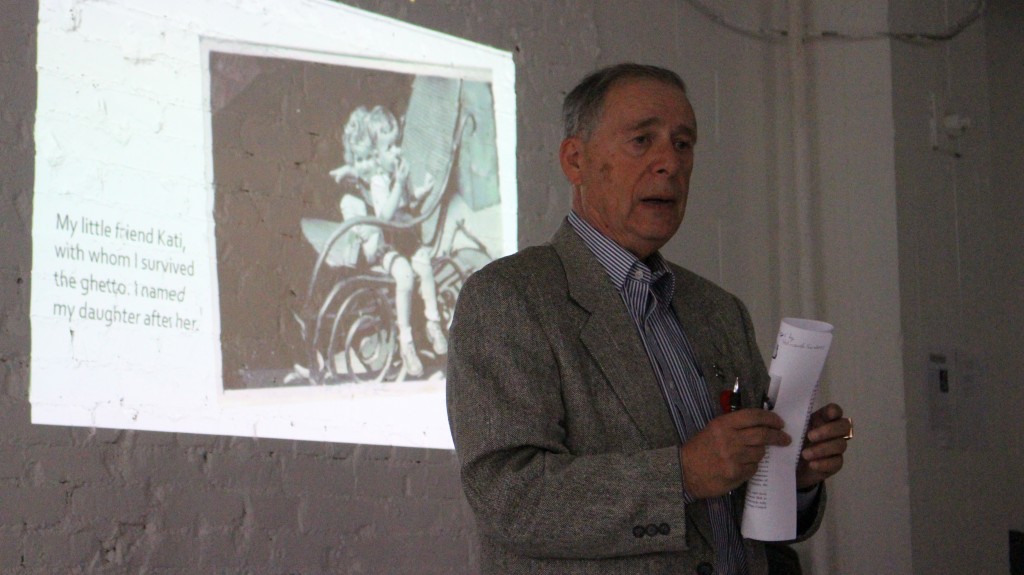November 15, 2015 10:02 am·
By Abby Chan
Now a 73-year-old grandfather of four, child Holocaust survivor Andy Reti travels across café Canada and the U.S. with members of Yidden on Wheels, the largest Jewish motorcycling club in Canada, to provide educational services to schools and organizations.
Hillel Ryerson, an organization that focuses on Jewish student life, invited Reti to speak about his experiences Tuesday at the community loft, located beside Yonge-Dundas Square, for Holocaust Education Week.
Reti began his “Ring of Love” presentation by explaining that the common question so many have probably asked about the Holocaust was wrong.
“The question is not, ‘Where was God?’” he said, “ but ‘Where was Man?’”

Holocaust survivor Andy Reti sharing his story at Ryerson (Ban Ibrahim / Ryersonian Staff)
In the introduction to the event, Shlomit Kriger, a Ryerson alumna who compiled Marking Humanity: Stories, Poems, & Essays by Holocaust Survivors, said that the biggest group involved in the Holocaust was arguably the bystanders.
“Adolf Hitler would not have been able to achieve the level of mass destruction that he did if it weren’t for the co-operation of so many people who chose to go along with his ideas and beliefs.”
Born in 1942, Reti was only two years old when his mother and grandmother were forced out of their home in Hungary. By then, Reti’s father and grandfather had already been taken away for manual labour.
Given only five minutes, they took Reti and all their valuables — among them was the “Ring of Love” that commemorated his mother and father’s wedding in 1939. After 15 minutes of walking, the Gestapo stopped the Jewish captives and made them hand over their possessions.
Reti said his mother Ibolya “was so much in love with that wonderful man that, at the risk of her own death, and mine, she decided that she was not going to hand over her wedding band to her captors.” She hid the ring in baby Reti’s diaper.
Throughout his half-hour presentation, Reti emphasized that the reason he survived the Holocaust was because of love.
“Every Holocaust story is a love story — love of life, love of family and love of freedom,” he said. He now wears the ring of love on his left hand during special occasions as a reminder of his mother’s spirit.
During their time at a Budapest ghetto, Ibolya would read to the two-year-old Reti to distract him from his hunger, especially when food supplies became scarce in the months before they were liberated in January 1945.
While Reti’s story is technically his mother’s, he said “it’s also my story because I was with her when it happened.”
By the end of the presentation, Reti took off his grey jacket and put on a black vest full of badges — representing his motorcycling identity.
Reti shares his story today to tell young adults “that when you hear, or see, witness something wrong, you must speak up. You cannot be a bystander. You cannot go along with the crowd to get along just because you don’t want to speak up. You must speak up.”
That is his anti-bullying message.
